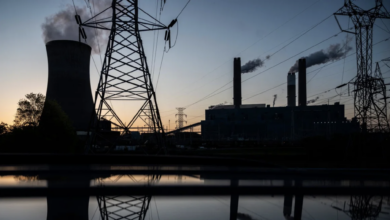The price of meat and milk is a scandal, especially when we consider the average Egyptian’s low income and the fact that Egypt is an agricultural country endowed with the Nile River.
Allow me to say, at the risk of being snobby, that I have a solution to this problem. I wish to be proven wrong by regime supporters who have done nothing but deprive us of meat and milk, advising us to go vegetarian instead. They don’t seem to know that grains, too, have become unaffordable for Egyptians. But who confronts the regime about that?
The neglect of agriculture dates back to a time when democracy was abolished in favor of authoritarianism and the worship of one leader.
After the 1952 revolution, the government attempted to transform Egypt from a cotton plantation to an industrialized country, building factories over agricultural land instead of in the desert. The most dangerous manifestation of this trend was the construction of textile factories in Shubra el-Kheima, which destroyed Cairo’s vegetable plantation and paved the way for the spread of informal settlements today.
In the nineteenth century, Mohamed Ali expanded the scope of agriculture, and under the British occupation (which began in 1882) the amount of cultivated land was doubled. But Egypt became vulnerable to economic crises as its economy depended heavily on a single crop, cotton. Instead of restoring balance to Egypt’s agriculture, leaders of the 1952 revolution regarded agriculture with contempt.
Indeed, privileging industry over agriculture was a productive alternative. However, we ended up ruining both sectors as the factories that devoured agricultural lands were sold at dirt-cheap prices and, instead of producing anything, and the land on which they were built was sold again at much higher prices for real-estate purposes.
Here’s the solution: The importance of growing agricultural crops, most importantly cotton, should be recognized. Ginning, spinning and weaving factories and tailor workshops provide job opportunities for many workers who, when left jobless, travel abroad in search of a living. Egyptian cotton is of high quality, akin to silk in international textile markets, and cotton seeds form the basis of oil industries and are used as fodder.
When we produce cotton seed quantities that can reduce the price of a kilo of fodder below that of a kilo of wheat, people will no longer buy bread to feed their animals and birds. Farmers will also be able to breed more animals for meat, which require fodder and not clover or wheat.
When farmers have fodder instead of clover, they will atomically grow more wheat than clover–increasing our production of that essential crop. Indeed, Egypt’s sovereignty is closely connected to wheat self-sufficiency.
More attention and research devoted to agriculture will maximize the benefits we derive from major agricultural crops. It will also help prevent the formation of the black cloud that results from burning rice husks, which instead will be used in key industries, most importantly fodder, that will in turn boost our production of meat and milk.
But at present, it’s shameful that the price of meat in Egypt is 20 times higher than the price of a kilo of meat in Rome, and that the price of one kilo of milk in Cairo is one and a half times higher than the price of one kilo of milk in Riyadh.
Translated from the Arabic Edition.




